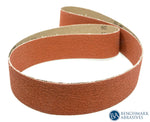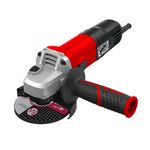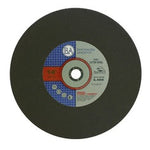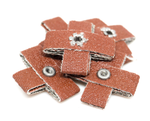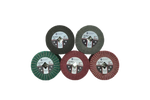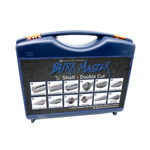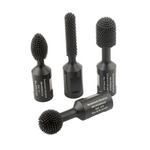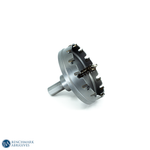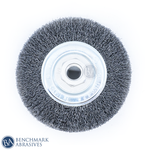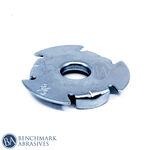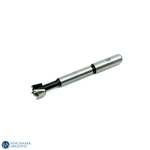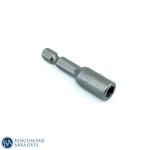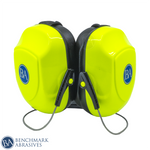
Exploring The Diversity Of Power Brushes: Nylon vs Wire Brushes

Quality and efficiency of labor can be greatly affected by selecting the appropriate brush type when it comes to industrial cleaning, surface preparation, and other maintenance chores. Nylon abrasive brushes and wire brushes are two often utilized alternatives. Because each type has specific advantages and qualities, it can be used for different kinds of applications. This article will discuss the distinctions between nylon abrasive brushes and wire brushes, as well as their respective applications and things to think about when choosing the right brush for a certain job.
WIRE BRUSHES: ROBUST AND ACCURATE
Because of their durability and adaptability, wire brushes have been used for decades in a wide range of sectors. Typically, these brushes are constructed of carbon steel, brass, or stainless steel bristles that are securely embedded in a handle or backing material. To accommodate diverse applications and surfaces, they are available in a range of sizes and shapes.
THE BENEFITS OF WIRE BRUSHES
- INTENSIVE CLEANING: Heavy-duty cleaning jobs including rust and paint removal, welding cleaning, and surface preparation for painting or welding are all excellent uses for wire brushes. The strong metal bristles remove impurities and hard deposits with ease.
- PRECISION IN DETAILING: Wire bristles' delicate and stiff texture makes them perfect for precise work. They can get into places that other brush types might find difficult to reach, like confined spaces and areas with fine details.
- DURABILITY: The longevity of wire brushes is well-known. They are an affordable option for jobs requiring frequent use because they can tolerate significant wear and tear.
-
HEAT RESISTANCE: Certain wire brushes are made to withstand high temperatures, making them suitable for jobs like clearing slag from welding joints.
Applications of wire brushes. - METAL FABRICATION: Before welding or painting, rust, scale, and old paint are frequently removed from metal surfaces using wire brushes.
- WELDING PREPARATION: They are necessary to wipe away impurities such as oxidation and weld slag that may affect the quality of the weld.
- AUTOMOTIVE RESTORATION: By eliminating rust and corrosion from metal components, wire brushes help restore vintage automobiles in the automotive industry.
- INDUSTRIAL MACHINERY MAINTENANCE: By removing dirt and debris, wire brushes play a crucial role in the upkeep of industrial machinery and equipment.
NYLON ABRASIVE BRUSHES: ADAPTABLE AND SAFE FOR SURFACES
In contrast, nylon abrasive brushes are a more recent development in the field of industrial cleaning and surface preparation. These brushes are made of nylon bristles that have been treated with an abrasive substance, like aluminum oxide or silicon carbide. The cutting action of the abrasive granules improves the cleaning power of the brush.
THE BENEFITS OF NYLON ABRASIVE BRUSHES
- MILD CLEANING: In comparison to wire brushes, nylon abrasive brushes provide a milder cleaning method. Because of their less harsh abrasive action, they are appropriate for activities where maintaining the integrity of the base material is essential.
- DECREASED RISK OF SURFACE DAMAGE: Softer materials, such as wood, plastic, and sensitive metals, are less likely to be scratched or harmed by nylon bristles and embedded abrasive particles.
- CONSISTENT FINISH: These brushes provide surfaces with a more even finish, which is useful for tasks like deburring, blending, and creating a matte or satin finish.
- BROAD RANGE OF USES: Nylon abrasive brushes are multipurpose tools used in a variety of industries, such as electronics, aerospace, carpentry, and even the food sector for conveyor belt cleaning.
APPLICATIONS OF NYLON ABRASIVE BRUSHES
- WOODWORKING: To prepare surfaces, finish wood, and distress wood without incurring undue wear, nylon abrasive brushes are utilized.
- AEROSPACE: These brushes help clean and deburr delicate metal parts and composite materials in the aerospace manufacturing process.
- ELECTRONICS: To clean sensitive electronic components and remove oxidation from PCBs, nylon abrasive brushes are used.
- FOOD BUSINESS: To maintain hygienic conditions, the food business uses nylon abrasive brushes to clean conveyor belts and other equipment.
CHOOSING THE RIGHT WIRE BRUSH: THINGS TO CONSIDER
The type of work being done, the material being worked on, and the intended result all play a role in choosing the right brush. The following things to bear in mind are:
- TASK INTENSITY: Determine how much cleaning or getting ready is necessary. Wire brushes are best for heavy-duty operations that require removing stubborn paint or rust. Nylon abrasive brushes are a superior option for activities that require a more delicate touch and are lighter.
- SURFACE FINISH: Take into account the intended finish. Nylon abrasive brushes can produce a more consistent finish if you require a smoother and more consistent surface finish.
- POSSIBLE HARM: Determine the possibility of material damage. While nylon abrasive brushes are less prone to damaging delicate surfaces, wire brushes can be more abrasive and could leave marks on them.
- MATERIAL TYPE: Choose the substance that you want to work with. While nylon abrasive brushes work better on delicate surfaces, wire brushes may be more appropriate for sturdier materials like metal.
- ACCESSIBILITY: Because wire brushes have stiff bristles, they may be more advantageous when reaching difficult or confined areas.
- SAFETY ISSUES: Safety issues may come up depending on the task. When using wire brushes, bristles may fall out, which can be dangerous if not handled carefully.
CONCLUSION
There are specific functions for both wire brushes and nylon wire brushes in the field of industrial cleaning and surface preparation. While nylon abrasive brushes are more adaptable and provide a softer clean, wire brushes are better at heavy-duty cleaning and fine detailing. They may be used on a variety of materials and applications. The type of task, the material being worked on, and the intended result must all be taken into account while choosing the appropriate power brush.
Through comprehension of the distinctions between these two varieties of brushes and assessment of your requirements, you can guarantee productive outcomes in a range of industrial and maintenance situations.

